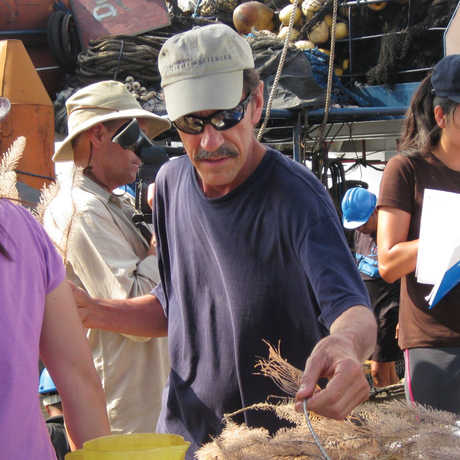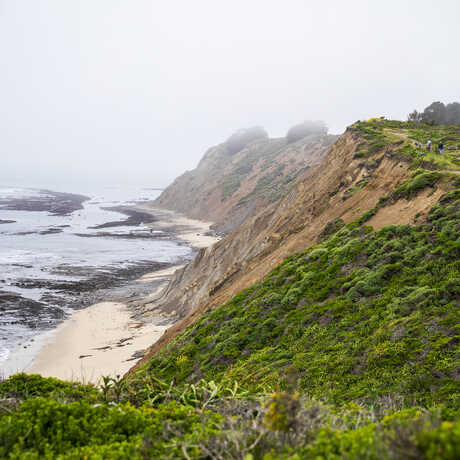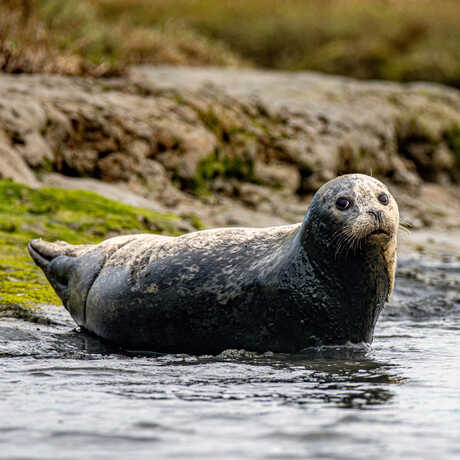Webcams
Farallon Islands Live Webcam
Explore the fabled Farallones via the islands' only webcam.
Get a rare view of the Farallon Islands' craggy peaks and rocky shorelines and scan the islands for marine mammals and birds. Our high-definition webcam is newly restored and now streaming live from a lighthouse atop Southeast Farallon Island.
Click the orange "Join the Queue" button to wait your turn to control the camera (it could be a few minutes), then select a cam view from the drop-down menu.
The webcam is a partnership of the Point Blue Conservation Science, U.S. Fish and Wildlife Service, and the California Academy of Sciences. Thanks to the Santa Cruz Island Foundation for donating a new camera to this project. Also, thanks to TwoP LLC for supporting the telecommunication system of the Farallon Islands National Wildlife Refuge—read a case study of the project here.
About the Farallon Islands
The islands of the Farallon Islands National Wildlife Refuge are managed by the U.S. Fish and Wildlife Service and are located nearly 30 miles off the coast of San Francisco. The Farallones host globally significant wildlife populations, including hundreds of thousands of seabirds and thousands of seals and sea lions. They are also a place of science where biologists from Point Blue Conservation Science study this complex ecosystem every day of the year, looking at the data to find ways to guide conservation and restoration of the islands in the face of climate change and other threats.
Because of the important and sensitive seabird and mammal populations that use the Farallones as breeding grounds, the islands are not open to the public. They are accessed only by a small number of wildlife biologists and resource managers. Point Blue Conservation Science has been doing science and training the next generation of scientists on the islands since 1968 in partnership with the U.S. Fish and Wildlife Service.
Species guide
What to watch for:
Year-round: California sea lions, Western Gulls, beautiful island landscapes
December–February: breeding elephant seal colonies
March–August: breeding seabirds
September–November: transient wildlife like migratory birds, whales, and great white sharks
Seabirds
- Cassin's Auklet*
- Rhinoceros Auklet*
- Ashy Storm-Petrel*
- Western Gull
- Brandt's Cormorant
- Pelagic Cormorant
- Double-crested Cormorant
- Tufted Puffin
- Common Murre
- Pigeon Guillemot
- Black Oystercatcher
Marine mammals
- Steller Sea Lion
- California Sea Lion
- Northern Elephant Seal
- Harbor Seal
- Northern Fur Seal
- Humpback Whale
- Gray Whale
- Blue Whale
* nocturnal species
The Farallon Islands are remote and weather there is extremely unpredictable, with varying windy, wet, and salty conditions. If you notice anything that doesn’t seem quite right with the webcam, please let us know by sending an email to webcams@calacademy.org.






